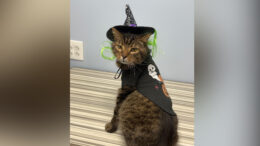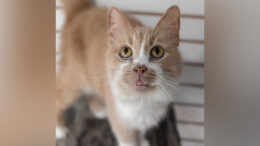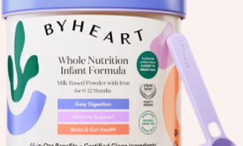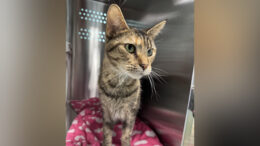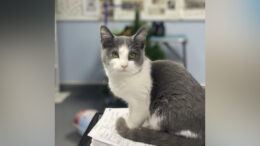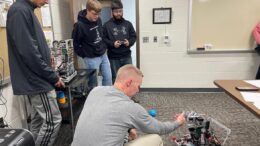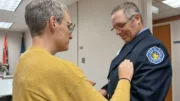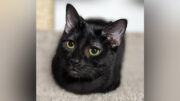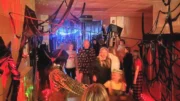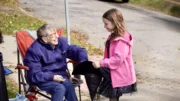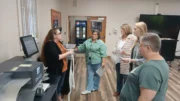During the program, educators discuss signal words that can be seen on chemicals and how a Mr. Yuk sticker can alert families to a potentially poisonous product. Mr. Yuk, a green symbol developed by the Pittsburgh Children’s Hospital, displays the phone number for the National Poison Center.
At the conclusion of the program, the students are given a take-home packet which includes Mr. Yuk stickers and a family homework assignment to identify signal words and storage locations of chemical products, with an eye toward finding safer storage locations and promoting safer storage practices by using Mr. Yuk.
Sponsored by the Pesticide Education Program in Penn State’s College of Agricultural Sciences, the statewide Poison Prevention Program reached more than 16,000 first-grade students in 2016, with more than 500 presentations delivered in 31 counties. Penn State Master Gardeners and agricultural education groups coordinate and present the program to local schools. Since 2010, over 65,000 first graders have participated in the Poison Prevention Program in Pennsylvania.
National Poison Prevention Week was March 20-26, 2016. According to the American Association of Poison Control Centers, approximately 50 percent of calls received involve children under the age of five, and more than 90 percent of calls are exposures that happen in the home. The National Poison Center phone number, (800) 222-1222, can be called 24 hours a day, seven days a week. Every 10 seconds, a poison exposure case is handled by a poison center somewhere in the U.S.
For more information about poison safety and to learn how you can get Mr. Yuk stickers for your home, visit the Penn State Pesticide Education Program website at extension.psu.edu/pesticide-education.






